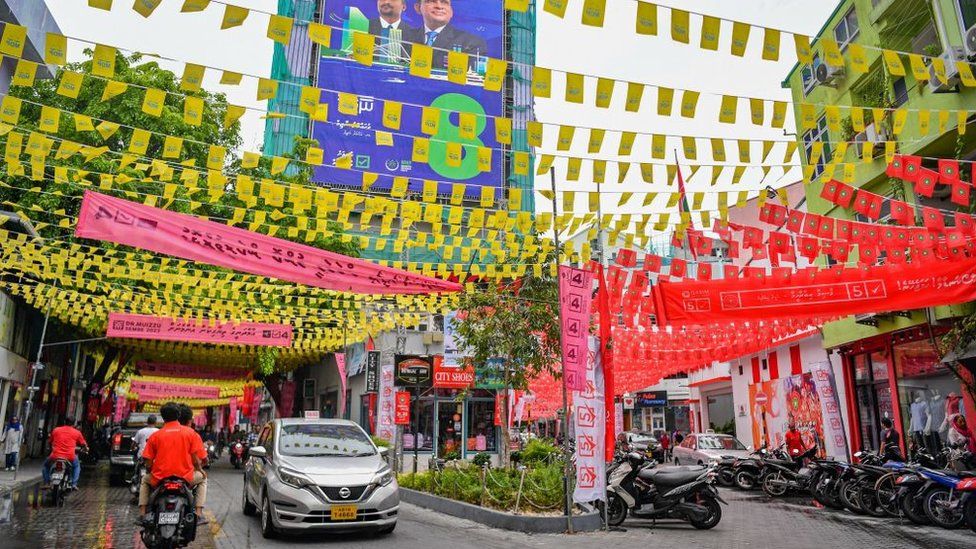-

-
-
Loading

Loading

The Maldives, known for its beautiful beaches and marine life, is becoming a battleground for geopolitical rivalry. The upcoming run-off poll between President Ibrahim Mohamed Solih and opposition candidate Mohamed Muizzu is not just about the leadership of the island nation, but also about the influence of India and China. Both countries are vying for a stronger presence in the strategically located Maldives, which sits along important shipping lanes. President Solih, from the Maldivian Democratic Party (MDP), has strengthened relations with India since his surprise win in 2018. On the other hand, Muizzu, from the Progressive Alliance coalition, favors better relations with China. India has long had influence in the Maldives, as it allows Delhi to monitor a key part of the Indian Ocean. However, China sees the Maldives as an important location for its expanding naval forces and wants to protect its energy supplies from the Gulf. Both countries have provided the Maldives with significant financial assistance for infrastructure and development projects. In the first round of elections, President Solih received just 39% of the votes, indicating potential favor for China. One issue that may have hurt Solih's performance is criticism that his administration prioritized relations with India over China. However, Solih dismisses claims of a zero-sum game and emphasizes the importance of maintaining good relations with both countries. An issue that has become unpopular is the "India-first" policy, which has raised concerns about the presence of Indian military personnel in the Maldives. The opposition has called for the removal of Indian security personnel, fearing that their presence endangers national security. President Solih insists that there are no active overseas military personnel stationed in the Maldives and that the Indian personnel are under the command of the Maldives National Defence Force. Under the previous president Abdulla Yameen, the Maldives moved closer to China and joined President Xi Jinping's Belt and Road Initiative. Yameen turned to China for financial support when India and Western lenders were hesitant due to human rights concerns. Yameen is currently serving a prison term for corruption and Muizzu is seen as a proxy for him. Given the tensions between Yameen and India, China is a natural choice of support for the opposition. Both China and India have invested heavily in the Maldives, with China funding significant projects such as a bridge connecting the capital to the international airport. India has also provided loans and grants, but its motives are viewed with suspicion by some people in the Maldives. As the run-off election approaches, President Solih is facing challenges in narrowing the gap with his rival, as he has not been able to secure the support of key smaller parties. The opposition alliance has capitalized on the "India out" narrative, expressing concerns about India's influence on the country's sovereignty. While domestic issues such as the rising cost of living, unemployment, and climate change are concerns for young Maldivians, the outcome of the election will heavily impact which Asian power gains a foothold in the region's battle for dominance.